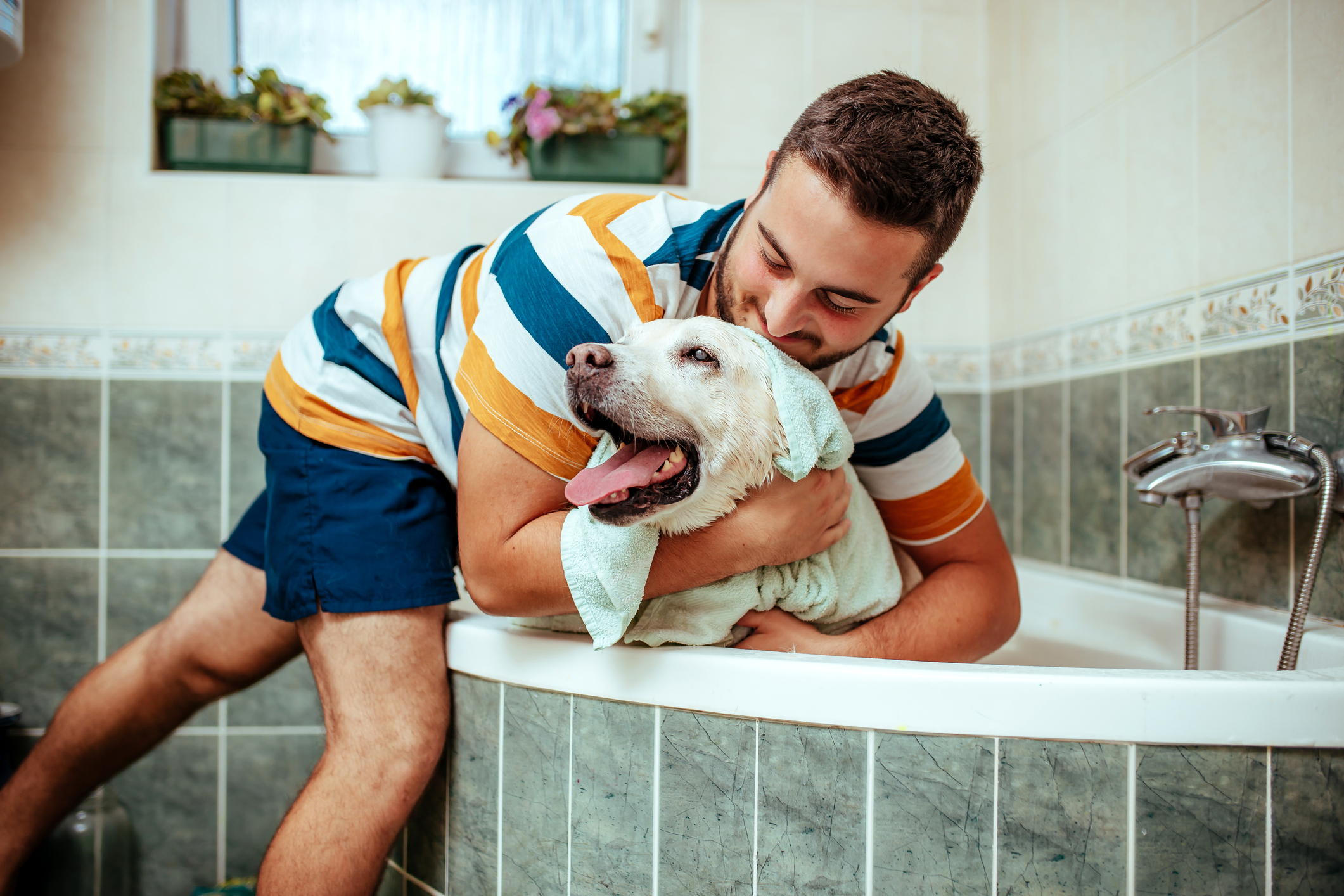
This Is Why You Should Be Careful When Selecting Shampoo for Your Pet
Even if you take your pet to the groomers for a scrub and a trim, pet shampoo is always a good thing to have on hand. When your dog inevitably returns to the house covered in mud or your cat gets into something in the kitchen, you’ll want to put them in the tub to get them squeaky clean. However, not all pet shampoos are good for your pets—or for all pets.
Cat and dog owners should be cautious when purchasing shampoo for their furry friends. Here’s why you should choose your pet’s shampoo carefully and some considerations to make sure it’s the best choice for your pet’s coat.
Be mindful of shampoo ingredients
The first thing to be mindful of when you’re selecting a shampoo for your pet is that human shampoos are not suitable for cats and dogs. It’s always recommended that you purchase a pet-specific shampoo to ensure that there are no harmful ingredients in it that could make your pet sick.
Remember, cats lick themselves when they groom, so anything on their coats eventually ends up in their mouths. Dogs may not groom as extensively as cats, but they can still lick their fur. Toxic ingredients from your shampoo could be very dangerous! Additionally, your pet’s skin might also be sensitive to some ingredients found in human shampoos. These shampoos tend to dry out pets’ delicate fur and skin, making their coats dull and brittle.
Even when you put the human shampoo away and opt for a pet shampoo, you still want to be careful of which one you use. Typically, you’ll want to choose a shampoo that’s specifically formulated for cats or for dogs. The reason for this is the ingredients present in each.
Shampoos made for dogs might contain ingredients that are toxic to cats—particularly if you’re getting a flea shampoo or one formulated with tea tree oil. Even if they aren’t toxic, certain ingredients might be harsher on a cat’s skin than they are on a dog’s and can cause dryness.
Some shampoos will be formulated safely for both cats and dogs and will state so on the bottle. Make sure you’re checking the ingredients list and look for a warning that might say “For cats only” or “For dogs only” before you buy.
Finally, there are some ingredients you’ll want to watch out for no matter whether you’re shopping for a dog or cat. Things like parabens and sulfates (preservatives and detergents), as well as artificial fragrances and dyes, are not good for your pet’s coat.

Other considerations for your pet’s shampoo
Beyond checking the ingredients label to ensure a shampoo is safe for your pet, there are a few other considerations to keep in mind when selecting a product. Every cat’s and dog’s coat is different, and shampoos are formulated for these differences. Think about the following factors.
Coat type
Does your pet have thin fur, or is it long and thick? Does their coat tend to be dry or oily? Is it long and at risk of tangling, or is it short?
You’ll want to select the right shampoo based on these aspects of your pet’s coat type. Dogs with long, thick and curly fur usually benefit from a conditioning shampoo that keeps the fur moisturized and minimizes tangles. This shampoo would not be appropriate for a pet with short and oily hair, or their coat might start to look greasy. Other formulations, such as those for added shine, are ideal for pets with dull coats.
Skin condition
Does your cat or dog have a condition that affects their skin? Common skin problems include dryness, allergies that cause itchiness and sensitivity.
Dry, itchy skin caused by allergies can benefit from a moisturizing shampoo that contains soothing ingredients like aloe vera and honey.
If your pet has sensitive skin that reacts with inflammation, bumps and itchiness after a wash, those same soothing ingredients can offer relief. You’ll also want to stay away from fragrances and unnecessary ingredients.
After you bathe your pet, be on the lookout for signs of inflammation or irritation on your pet’s skin. This may be a sign that an ingredient is irritating the skin and should be avoided in the future.
Specialized shampoos
Some shampoos are formulated specifically for certain health conditions, such as parasites or skin infections. Flea and tick shampoos can help rid your pet of parasitic insects and prevent them from making your pet’s coat home for a short time. These shampoos should always be formulated for cats or for dogs, specifically.
Other medicated shampoos can help sooth problems like skin infections. You typically need to get these kinds of products from your vet.
If you’re not sure what kind of shampoo is right for your furry friend, the best thing you can do is talk to your vet about your pet’s coat type, skin condition and more specific skin problems. They can give you recommendations for the safest and highest quality pet shampoo that will leave your pet’s coat looking shiny and clean!


